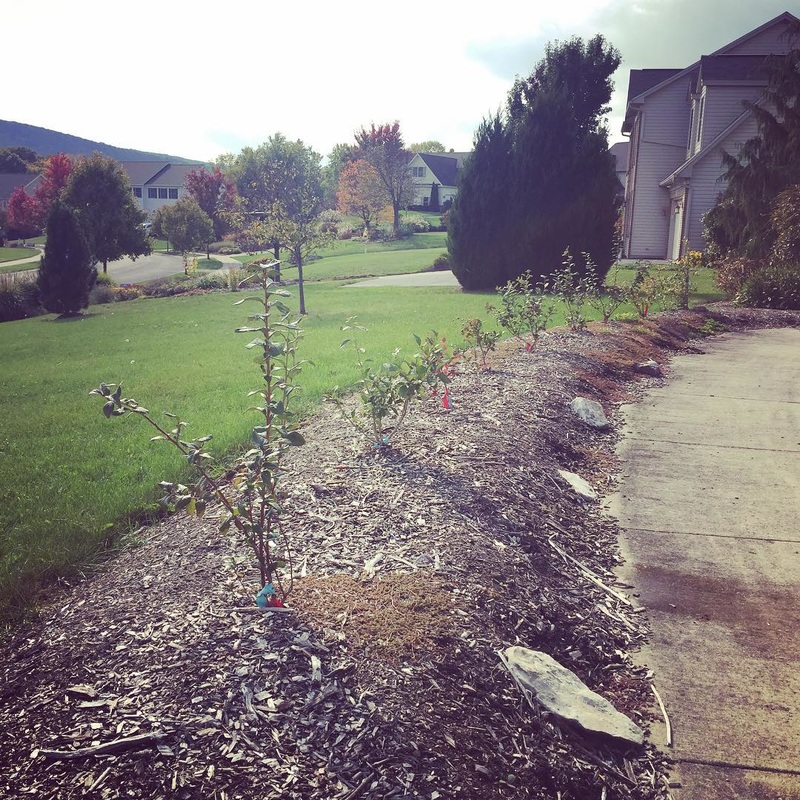|
Blueberries are a notoriously difficult plant to establish and keep alive in Central Pennsylvania. If you, in the past have killed one, try not to feel bad about it; it is more complicated than buying a plant from a big box store and plopping it into the ground. Blueberries require a pH of 4.5-5 to survive. For those of you who don't have fish tanks, pH is the measure of acidity or alkalinity of a solution. Below 7 is Acidic, above 7 is Alkaline. Most plants we grow in the garden like to be at around 6-7. Our soils in Centre County are usually around 7.5. Lowering pH is no picnic, and certainly cannot be done overnight. The Pennsylvania State Extension suggests to just remove all the soil where you will be planting a blueberry bush and replace it with your own. I mix a healthy amount of peat moss with compost and some of the parent soil. I then use a mixture called Flour of Sulfur, which is elemental Sulfur that lowers the pH. Flour of Sulfur is not a magic bullet and is not usable by the plant, it requires soil microbes to convert it into Sulfuric Acid. These soil microbes require warm moist soil, and time, but mainly time. The best time to start this process is now. I just visited a blueberry planting that I started last October. I dug 10 holes, filled them with peat moss, compost, and Flour of Sulfur and waited, for months. A new blueberry plant should not be planted until after the danger of the last frost has passed in the spring. These blueberries were planted in June, after a spring of the soil microbes working on the Sulfur. Each and every one of these are healthy after their first season in the ground. Alternatively preparing the holes for planting in March works too, I also did this for a client this year and the results are still successful, I just like it less. The only thing a plant needs to survive is having exactly what it needs at exactly the right time. If that takes a few extra months, I am happy to oblige. Blueberries like constant moisture, but do not like to have wet feet. Other than the pH issues, our soils are mostly clay, which hold moisture creating this environment of “wet feet”. Blueberries should be thickly mulched to avoid fluctuations of moisture. And now you know! Happy Farming, Woody
0 Comments
|
AuthorWoody runs Wilson Home Farms and wants everyone to know how easy it is to farm. Archives
March 2018
Categories |

 RSS Feed
RSS Feed